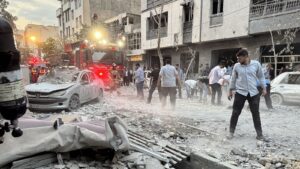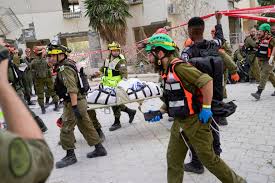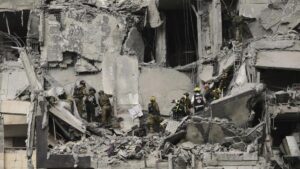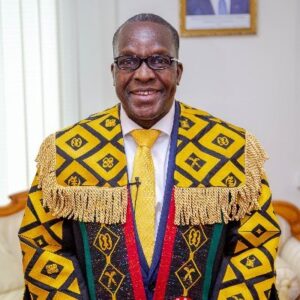Putin and Trump Set to Discuss Potential Russia-Ukraine Truce Amid Uncertainty
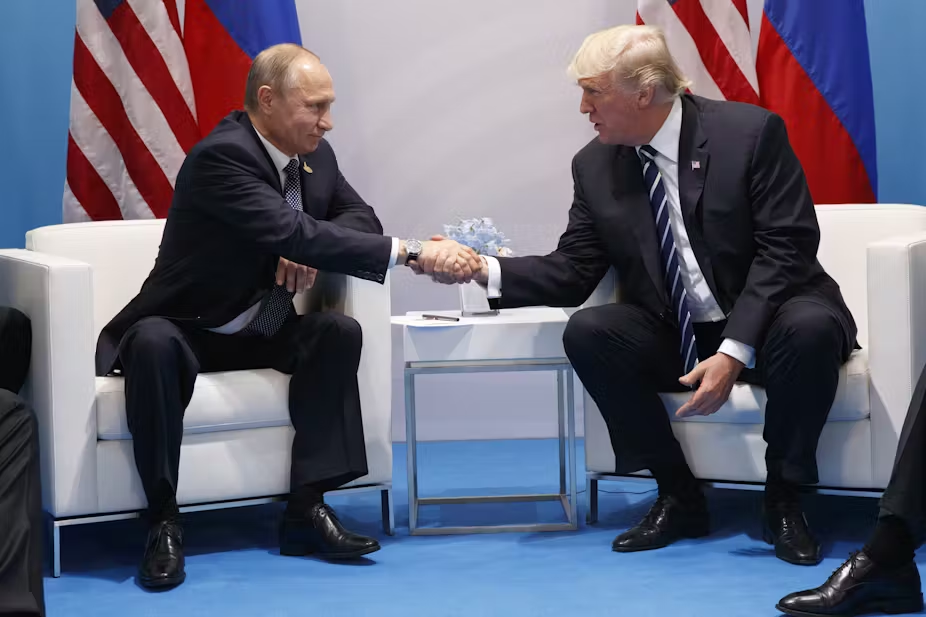
U.S. President Donald Trump has announced plans to speak with Russian President Vladimir Putin on Tuesday to discuss potential pathways toward ending the war in Ukraine, with territorial concessions from Kyiv and control of the Zaporizhzhia Nuclear Power Plant expected to be key topics. The upcoming phone conversation, which comes after continued fighting and heavy aerial bombardment from both sides, is part of Trump’s broader effort to broker a ceasefire agreement between Russia and Ukraine.
“We want to see if we can bring that war to an end,” Trump stated to reporters aboard Air Force One on Sunday while flying back to Washington, D.C., from Florida. He expressed cautious optimism, saying, “Maybe we can, maybe we can’t, but I think we have a very good chance.” He further mentioned that significant groundwork had been done over the weekend ahead of his phone call with Putin on Tuesday.
The Kremlin confirmed the upcoming discussion on Monday. Dmitry Peskov, a spokesperson for the Russian government, confirmed that the two leaders would speak by phone but did not provide further comment on Trump’s remarks regarding territorial adjustments and the nuclear facility. “Yes, this is indeed the case,” Peskov said, adding, “Such a conversation is being prepared for Tuesday.”
Trump’s efforts focus on securing Putin’s backing for a proposed 30-day ceasefire, which Ukraine agreed to last week. The ceasefire proposal comes amid continued hostilities between the two nations, with intense aerial bombardments exchanged over the weekend. On the ground, Russia has been pushing to oust Ukrainian forces from their position in the Kursk region near the western Russian border.
When questioned about the specifics of the ceasefire negotiations, Trump mentioned that discussions would involve territorial concerns and the control of important assets like power plants. “We’ll be talking about land. We’ll be talking about power plants. … We’re already talking about that, dividing up certain assets,” he said. While Trump did not elaborate further, he likely referred to the Zaporizhzhia Nuclear Power Plant, Europe’s largest nuclear facility, which is currently under Russian control. Since early 2022, the facility has been a focal point of the conflict, with both Russia and Ukraine accusing each other of attacking it, raising fears of a nuclear disaster.
Al Jazeera’s Dorsa Jabbari reported that the Zaporizhzhia plant is expected to play a central role in discussions. Captured by Russian forces in March 2022, the plant remains operational under Russia’s nuclear energy agency, Rosatom. Despite being shut down, it remains an invaluable asset and a potential flashpoint in the ongoing war.
Another point of contention in the ceasefire discussions is Russia’s demand for security guarantees. Moscow has insisted that any agreement must prevent Ukraine from using the ceasefire period to rearm or regroup, fearing it would lead to a resumption of hostilities.
French President Emmanuel Macron commented on the negotiations on Monday, stressing that Trump had made it clear that certain conditions must be met by Russia for the ceasefire to take place. Macron stated on social media that it was now up to Russia to prove its genuine desire for peace. He also spoke to Ukrainian President Volodymyr Zelenskyy about the situation, reaffirming France’s support for Ukraine.
The Kremlin had previously sent a message to Trump through U.S. envoy Steve Witkoff on Friday, expressing cautious optimism that a ceasefire deal could be achieved. In interviews on Sunday, Witkoff, along with U.S. Secretary of State Marco Rubio and National Security Adviser Mike Waltz, noted that while progress was being made, there were still several hurdles to overcome before reaching a final ceasefire agreement.
Zelenskyy, however, remains steadfast in his commitment to Ukraine’s sovereignty, reiterating on Friday that while a ceasefire might be possible, Ukraine would never concede its territorial integrity. Russia must relinquish the lands it has seized, including Crimea, which it annexed in 2014, as well as parts of eastern and southern Ukraine it has occupied since its invasion in 2022.
Putin has justified his actions in Ukraine as necessary to safeguard Russia’s security, citing the threat posed by NATO’s expansion eastward. Meanwhile, Ukraine and its allies argue that Russia’s actions represent an unprovoked act of aggression and an imperialistic land grab.
Russia’s ceasefire demands include that Ukraine abandon its NATO aspirations, recognize Russian control of occupied territories, limit the size of its military, ease Western sanctions, and hold a presidential election in Ukraine. Kyiv has rejected these terms, asserting that they are unacceptable while martial law remains in effect.
On the diplomatic front, the European Union’s foreign policy chief, Josep Borrell, expressed concern that Russia’s conditions for a ceasefire signal that Moscow is not truly committed to peace. Meanwhile, British Prime Minister Keir Starmer and other Western leaders have indicated plans to continue supporting Ukraine, including preparations to send peacekeeping forces if a ceasefire is reached.
As negotiations progress, hostilities continue. Ukrainian forces launched a drone strike on a Russian oil refinery in southern Russia overnight, sparking a large fire. In retaliation, Russia launched a barrage of 200 drones at Ukraine, damaging power infrastructure and injuring civilians. The attacks underscore the challenges in reaching a lasting ceasefire while both sides continue to fight on the ground.

